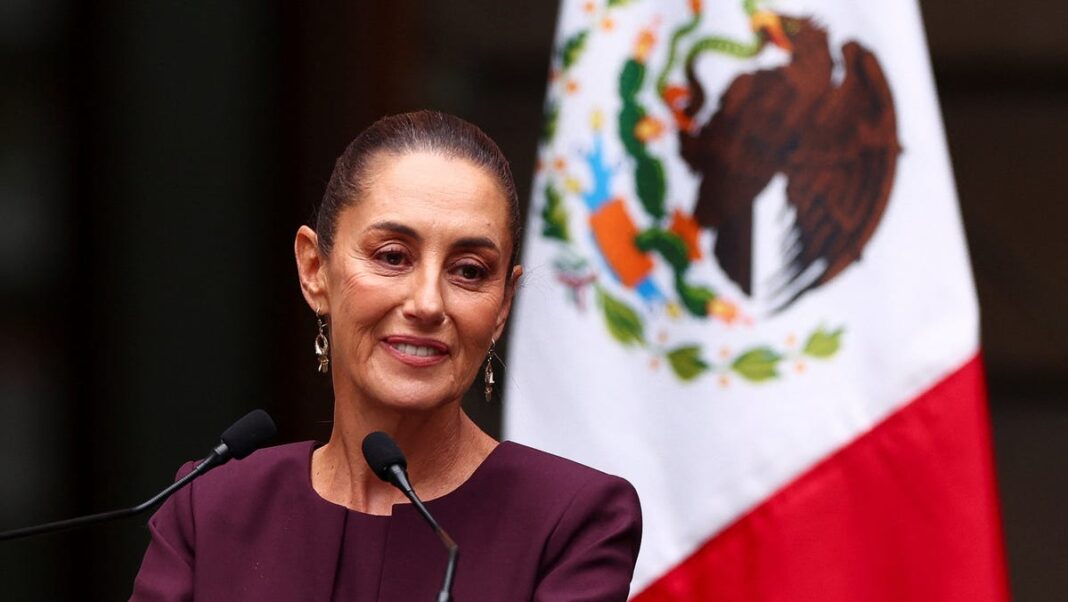Inauguration Day for Claudia Sheinbaum, Mexico’s First Female President
MEXICO CITY – Claudia Sheinbaum will officially become the president of Mexico on Tuesday, marking a historic moment as the first woman to lead the nation, which is the largest trading partner of the United States.
Her inauguration signals the start of a six-year term during which she will have to manage Mexico’s vital relationship with the U.S., influencing various issues ranging from migration to avocado prices in American grocery stores.
However, one critical question looms over her presidency: Who will be her counterpart during negotiations? Will it be Kamala Harris, a fellow woman who shares progressive views and champions diplomacy? Or will it be Donald Trump, whose populist approach and aggressive policies pose a significant challenge for Mexico?
According to Andrew Selee, president of the Migration Policy Institute in Washington, D.C., Sheinbaum “would far rather engage with a friendly neighbor to the north.” He notes, “Her background is steeped in leftist politics throughout Latin America, making it difficult for her to work alongside Donald Trump.”
Who is Claudia Sheinbaum?
Sheinbaum’s election is a significant milestone. Not only is she the first female president of Mexico, but she is also the first president of Jewish descent in a nation where Catholicism is deeply rooted due to its Spanish colonial history. All of her grandparents were Jewish immigrants to Mexico, as reported by the Jewish Telegraphic Agency.
At 62 years old, Sheinbaum is a Nobel Prize-winning scientist and has previously served as the mayor of Mexico City, which is both the political and cultural hub of the country, housing more than 9 million residents and over 22 million in its metropolitan area.
She is part of the MORENA political party, which was founded by her political mentor and previous leader, Andrés Manuel López Obrador, who is widely supported by those benefiting from his extensive social programs for elderly citizens and the unemployed.
Sheinbaum secured her position in the June presidential election with a significant victory and is anticipated to uphold the political initiatives set forth by López Obrador.
Currently, she enjoys strong approval ratings during this transition period, with a recent poll from Buendía y Marquez indicating that two-thirds of Mexicans view her favorably, and approximately 75% of respondents expect Mexico to perform as well or better than in the previous six years.
Sheinbaum’s inauguration is set for Tuesday at 8 a.m. Mountain Time in Mexico City, taking place at the San Lázaro congressional chamber.
Election 2024: Implications for Mexico
Once Sheinbaum takes office, the stakes regarding the upcoming U.S. election are particularly high for her.
Mexico’s economy is significantly reliant on the United States, bolstered by $475 billion in exports and $63 billion in remittances sent back by Mexicans working primarily in the U.S.
Currently, Mexico’s GDP growth has been stagnant at under 2% annually for the last two years, and predictions suggest a slowdown ahead, according to the country’s central bank. About 80% of Mexico’s exports are directed toward the U.S., including essential goods like medical devices, electronics, and automotive parts produced in border towns for American consumers.
Importantly, the free trade agreement among Mexico, the United States, and Canada is scheduled for renegotiation in 2026, and the outcomes could vary significantly based on who occupies the White House.
Simultaneously, Mexico is in the midst of a major campaign to restrain migration towards the U.S. border. Sheinbaum will face immediate challenges to continue these efforts, even as the increasing number of migrants in Mexico could lead to public frustration. Additionally, she will be under pressure from the U.S. to combat dangerous criminal organizations involved in trafficking fentanyl and other migrants into America.
She is also dealing with internal issues, having to carry out programs initiated by López Obrador, whose influence is likely to be significant during her presidency.
The first step involves a comprehensive reform of Mexico’s judicial system. This will allow for the election of judges at the local, state, and federal levels instead of their appointment. López Obrador advocated for this constitutional amendment during the final part of his presidency, despite facing strong criticisms from the U.S. government.
Inauguration Day in Mexico
U.S. First Lady Jill Biden is anticipated to be present at the inauguration ceremony, along with U.S. Ambassador to Mexico Ken Salazar, Secretary of Homeland Security Alejandro Mayorkas, and Secretary of Health and Human Services Xavier Becerra.
Before the inauguration, Mexican authorities set up movable steel barriers around the Zócalo, a large public square in Mexico City that usually hosts both celebrations and protests. A massive Mexican flag was displayed in front of the Palacio Nacional, the governmental palace where Sheinbaum will both govern and reside.
On the barriers, notes were left bearing a popular caricature of López Obrador, with many expressing their gratitude toward him.
“Thank you for the financial assistance you provide to my parents,” one note, signed by José Manuel Hernandez, read. “We will always honor the time we’ve spent with Obrador.”

